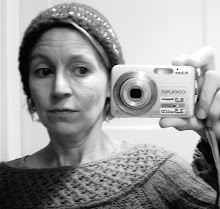 Woke this morning with such good intentions and had all kinds of thoughts about plagarism while I was getting ready to leave the house. Now, as so often I have lost the train of thought over the course of the day and I am sitting wondering what I was so fired up about earlier. We are away to hang a gorgeous picture which we have just finally got around to having framed by a Vietnamese artist called Nguyen van Cuong; just Googled him and found that there are actually two artists with the same name, somewhat confusingly. Our guy is from Hanoi, grew up in a more rural location and paints great pictures of buffalo, often with numerous sets of eyes; he also does some wonderful woodcuts. It will be so cool to have the picture up because I love it and it reminds me also of a fantastic trip.
Woke this morning with such good intentions and had all kinds of thoughts about plagarism while I was getting ready to leave the house. Now, as so often I have lost the train of thought over the course of the day and I am sitting wondering what I was so fired up about earlier. We are away to hang a gorgeous picture which we have just finally got around to having framed by a Vietnamese artist called Nguyen van Cuong; just Googled him and found that there are actually two artists with the same name, somewhat confusingly. Our guy is from Hanoi, grew up in a more rural location and paints great pictures of buffalo, often with numerous sets of eyes; he also does some wonderful woodcuts. It will be so cool to have the picture up because I love it and it reminds me also of a fantastic trip.I probably won't do the topic justice now, but the plagarism thing revolved around some comments I read on Facebook by an art critic, who was looking at the work of someone who paints car wrecks as a metaphor for the state of the world, society etc. I didn't particuarly warm to the images as I felt that the meaning was attributed a bit randomly; the images themselves were not sufficiently strong to put over such weighty themes. What I had issue with was the critics assertion that they were plagaristic as they copied themes found in other artists, Warhol and others, who had also chosen the car as their theme (of which Warhol was the only one whose cars had crashed; the rest were more 'car portraits'). I take issue with this because I don't see the problem with the guy using the same subject matter as other artists; we all have a limited repertoire of subjects available to us and no-one would accuse a portraitist of copying Rembrant purely on the grounds that he, too, painted the human face. I think plagarism is an issue when the intent or the technique is directly copied, or both, but subject?
Picasso's series including Las Meninas took directly from other artworks, but produced something that was original; likewise Rego in her 'take' on Hogarth. A painting is inherantly both unique (it is a single object created uniquely) and derivative; we all take from our mental image bank, consciously and subconsciously. I just find the topic of plagarism a thorny one; fair enough if you are a forger and make your living that way, or you consciously choose to emulate the work of your idol; that cannot be considered truly original, but I am uncomfortable with labelling something as plagaristic on the grounds of subject alone. I feel annoyed sometimes when I find after the event that I have included a subject that is an echo of another painter, but I believe that this is inevitable also; we all reach conclusions independently and use the same developing 'language' of symbols and references. Maybe too we see as critics what we want or expect to see; we all have what Umberto Eco calls our 'background books'; sets of ideas whichs we bring to a location or experience based on our own research and what we expect to see. Often we see this as a default and find it hard to see the reality. Time to go hang up a painting....


No comments:
Post a Comment